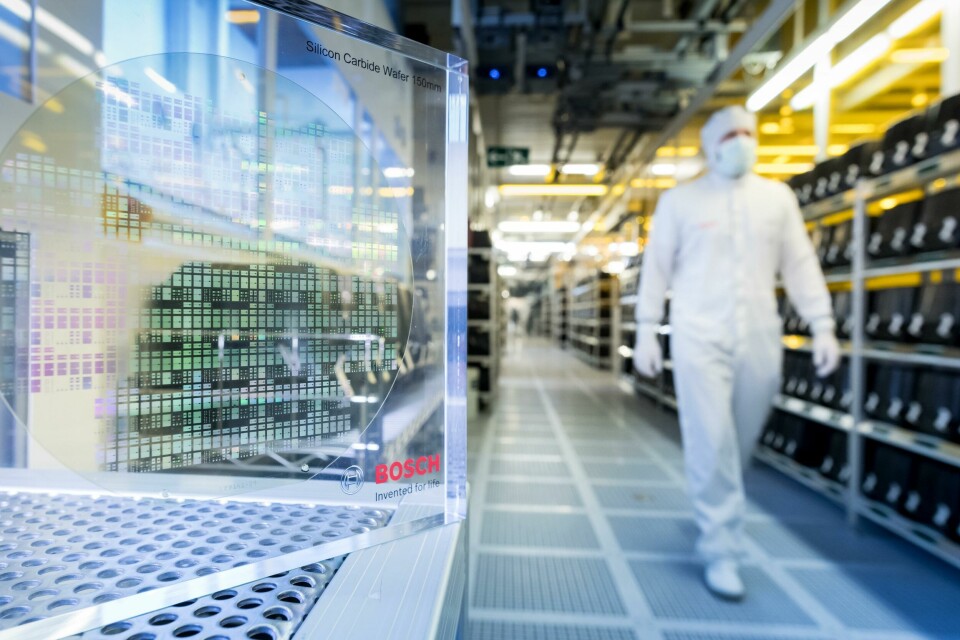Bosch to invest €3 billion to expand semiconductor production
The EU and German government will part-fund the expansion of the semiconductor manufacturing which the bloc has identified as an area of strategic importance.

Germany’s Robert Bosch, one of the world’s most important automotive suppliers, will invest €3 billion ($3.04 billion) through 2026 to expand its production of semiconductor chips, the company has announced, reinforcing European production of a component whose recent scarcity has thrown auto production into disarray.
The investment will be made as part of the EU’s new IPCEI funding program for microelectronics and communications technology. Its status as an Important Project of Common European Interest allows for provision of state aid within EU rules, with semiconductors now specifically identified as eligible.
Bosch’s announcement underscores the auto industry’s growing focus on electronics and software arising from powertrain electrification and longer-term aspirations for autonomous vehicles, which are creating a need for further innovation in this field.
“Microelectronics is the future and is vital to the success of all areas of Bosch business. With it, we hold a master key to tomorrow’s mobility, the internet of things,” said Bosch CEO Stefan Hartung at Bosch Tech Day 2022 in Dresden, according to a company press statement.
“We’re gearing up for continued growth in demand for semiconductors – also for the benefit of our customers. For us, these miniature components mean big business,” Hartung said.
The company will build two new development centres in Reutlingen, in south-west Germany, and in the eastern city of Dresden costing more than €170m combined plus €250m to add 3,000 square metres of contaminant-free clean room space at its wafer production site in Dresden, which opened in June 2021. That facility cost €1 billion, the largest single investment in Bosch’s history.
The Reutlingen semiconductor manufacturing site, which has been producing chips for about 50 years, will be expanded at a cost of about €400m. A site extension plus the conversion of some existing factory space will expand clean space needed for chip making by around 3,600 square metres. Total Reutlingen clean space will grow to 44,000 square metres by the end of 2025, up from 35,000 now.
State funding towards the investments will be provided by the European Union and German federal government in accordance with the European Chips Act proposed by the EU Commission and awaiting approval, to promote the microelectronics industry. It aims to mobilise €43 billion of public and private investment to double the EU’s share of the global market for chips to 20% by 2030.
Semiconductor production is also a major focus for the US government, where the Biden Administration has also proposed a bill worth $52 billion to support US domestic chip production, with companies such as Intel announcing major investments. However, progress on the bill is currently stalled, threatening a number of investments.
Bosch is looking to improve upon current semiconductor chips to make smaller, more powerful and cheaper radar sensors for autonomous vehicles. It is also researching the possibility of making chips for EV and hybrid car power electronics using gallium nitride alongside the silicon carbide (SiC) chips it started producing in late 2021 at Reutlingen.
While gallium nitride chips are used in laptop and phone chargers, further development is needed to enable them to withstand the much higher voltages of EV power electronics. Such a breakthrough could make these components more affordable and efficient, Bosch said.
Bosch is additionally building a test centre for finished semiconductor chips and sensors in Penang, Malaysia which will start operations in 2023, the company said.


